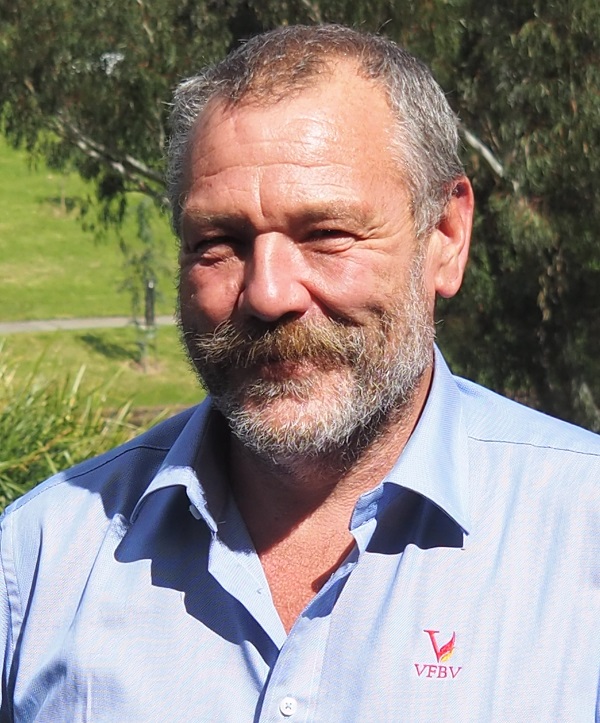
About (7)
VFBV is the representative body (Association) for CFA Volunteers and is established under Victorian law, the Country Fire Authority Act, to represent CFA volunteers on all matters that affect their welfare and efficiency.
Our vision statement is: Strong Volunteerism, Embraced to Build Community Resilience for a Safer Victoria.
VFBV works with the CFA Board and Management, Governments, Members of Parliament, official inquiries, municipal councils and instrumentalities, business and the public.
VFBV is made up of CFA volunteers – from individual members of Brigades, through their elected District Councils and State Councillors, to the VFBV Board. VFBV employs a small staff, most of whose members are also CFA volunteers.
The VFBV Board meets with the CFA Board as the peak forum on matters affecting volunteers, including policy development, volunteer welfare, volunteer support, equipment and infrastructure, volunteer development and planning for CFA’s future.
Seven VFBV/CFA Joint Committees deal with specific practical areas and are part of a system designed to provide experienced volunteer input to decisions and raise and resolve grass roots issues.
Through a statewide network of 21 District Councils and elected volunteer representatives, VFBV maintains direct links with grass roots volunteers over their issues, needs and concerns.
VFBV shares with CFA a commitment to a community based volunteer and integrated fire and emergency service which delivers a safer Victoria.
Adam Barnett
CEO, Volunteer Fire Brigades Victoria
VFBV Association Joint Committees
In early 2012, VFBV initiated a review of VFBV's and CFA's consultative framework, with the aim of strengthening the VFBV/CFA Joint Committee processes. The following is an excerpt from VFBV's submission to CFA entititled "Creating our future togther"
1.0 Introduction
VFBV has prepared this paper to assist with the shared development of a consultative framework that recognises the inexorable partnership volunteers through their representative body VFBV share with CFA as both organisations refine and optimise their structures and processes.
Through all layers of both organisations it is difficult to define examples of pure standalone influences or drivers that are not truly shared and in ‘Creating our Future Together’ CFA and VFBV must build on, refine and strengthen the strong networks long established, these defined by the depth and value of our people, their skills, knowledge, experience and wisdom.
In designing the way we implement robust and effective consultative arrangements for this future together, CFA and VFBV must build on extensive and mature networks that have served the CFA well to now, while recognising that the landscape and expectations from within and outside the Authority present opportunities and challenges.
CFA is truly a volunteer and community based fire and emergency service, unique in design and formation, a key strength being the imbedded nature of CFA in almost all communities across the State. This provides an enviable ability for CFA and VFBV to seek out opinions and make informed decisions that complement the partnership with Victorian communities when confronted with fire and other emergencies.
This paper sets out proposals to IN PARTNERSHIP:
- define the OBJECTIVES that refine the consultative strategy;
- develop PRINCIPLES that will guide such arrangements;
- establish TERMS OF REFERENCE for each entity (Joint Committee) defining direct and resilient linkages through Regions, Districts to brigades in their respective communities;
- agree on the ESTABLISHMENT & ALIGNMENT of Joint CFA/VFBV Committees to CFA’s refined organisational structure;
- agree on a meetings TIMETABLE that aligns, informs and adds value to Government, CFA’s and VFBV’s planning timeframes;
- develop an IMPLEMENTATION PLAN incorporating a communications strategy;
- agree on a shared EXECUTIVE FUNCTION that supports this strategy
2.0 Strategic Aim
Commit to this strategy to ensure that:
- VFBV and CFA continue to strongly represent and advocate on all matters that affect the welfare and efficiency of CFA volunteers;
- Our shared structure, consultative and communication processes to all stakeholders is efficient, timely and effective;
- In contemplating change we recognise the strengths of our past and current structure, forums, networks and people and look to enhance them;
- Commit to a continuous improvement approach to effectively promote, manage and ultimately resolve issues;
- Strengthen Joint Consultative processes by implementing effective structures and communication pathways in support of our Joint Committees and Consultative processes.
3.0 Our Commitment
To redefine the objectives, structure and consultative processes of VFBV Joint Committees and Working Parties, to ensure we strengthen consultative processes with CFA through effective internal and external processes.
Our Joint CFA / VFBV Committees will continue to work collaboratively, meeting and working through issues with the following Terms of Reference in mind:
- Progress against specific issues as part of a culture of expeditious issue resolution;
- Engage in and foster discussion of Strategic Issues, Directions and Approach for CFA;
- Manage change through organisation, volunteer and staff involvement and effective implementation;
- Prepare for and make progress on emerging issues and maintain an ongoing stocktake of current issues;
- Monitor and report on progress of issues against plan; and
- Build and operate reporting mechanisms that fulfil the expectations of our members.
4.0 VFBV Committees – Process & Purpose
4.1 Process & Refinements
VFBV have undertaken a refinement of our issues identification and management arrangements including bolstering our internal and external consultation and communication processes. We have focussed the number and the representative arrangements for Joint Committees compared to arrangement that have existed to date. In doing so we have been mindful of the change management and functional changes that CFA is undertaking.
We have formalised our VFBV Committees to identify and workshop issues in preparation for meeting together with CFA. When we meet together the same volunteer delegates will make up our Joint Committee nominees, bringing to the table activated and informed participants that will work together with CFA nominees at the Joint meetings. Further strengthening of our internal consultative processes will see each VFBV District Council having direct links to the seven (7) VFBV Committees, each District Council activating key volunteers in focused roles liaising and briefing brigades and volunteers relating to their portfolios activities and progress of issues.
VFBV nominees for our Committees and subsequently our Joint Committees are drawn from all CFA Regions and Districts. An important change from the past being each volunteer delegate will have only one Committee role, their nomination based on their knowledge and capacity to contribute to the Joint Committee to which they are allocated. VFBV District Councils have an enhanced role with the potential for volunteers they nominate that have particular subject matter expertise to be appointed on all VFBV Committees.
Working Parties and Reference Panels support all Committees. CFA and VFBV have used issue specific Working Parties (WP) and Reference Panels (RP) to great effect and we see this need to continue.
We expect that each CFA/VFBV Joint Committee may activate issue specific and time framed WP/RP’s on a needs basis as per past practice. VFBV will also activate specific WP/RP’s to support our VFBV Committees, key to these arrangements will be that each WP/RP will be convened and facilitated by a VFBV Committee member.
Finally, our VFBV Board members will each take a liaison role with one of our VFBV Committees.
4.2 Purpose and Vision
The review of VFBV’s Committee and Consultative Arrangements will see us:
- Deliver refinements to the structure of VFBV Committees, Working Parties and their consultative timeframes in support of our State Council, Board and other Joint Consultative forums;
- Integrate issues identification, management and resolution processes across all levels and functions of VFBV;
- Establish strategic consultative processes through VFBV’s representative network, using linked and empowered District Councils, Groups and Brigade representatives;
- Set and report performance measures against issues.
- Build capacity at all VFBV levels to enable our people to develop and grow in effectiveness and profile; and
- Communicate the strategic intent of our VFBV Board throughout the VFBV representative and consultative networks.
VFBV Committee Workshops will be held to prepare advice for State Council and other Consultative meetings and drive issues analysis.
Each VFBV Committee will:
- Gathering information and intelligence;
- Validating the evidence and preparing options and solutions analyses;
- Conducting engagement and communication with our broader membership;
- Driving the issues process to resolution;
- Prepare VFBV position papers for consideration;
- Introduce performance reporting by preparing advice of action against plan. Success /failure and regular audit/issues scanning;
- Developing a ‘Lessons Learned’ matrix to provide a reliable base set of historical and issues data;
- Manage the documentation and organisational memory supporting each Joint Committee.
VFBV Board
 |
Samantha Collins Samantha Collins first joined Bacchus Marsh Fire Brigade as a junior and since then has served as a firefighter and BMT member at Bacchus Marsh and Maryborough. A secondary teacher and mother of three, she is also a volunteer lifesaver and developed a special program on the emergency services for year 9 students. As a student, Samantha worked as a Project Firefighter for NRE and has since been a regular member of Strike Teams with her Brigade. Samantha has a strong interest in the development of youth, volunteerism to serve coming generations and the broadening of volunteer roles in CFA. Samantha joined the Board in October 2015, was elected State Vice President in 2017, and elected State President in June 2022.
|
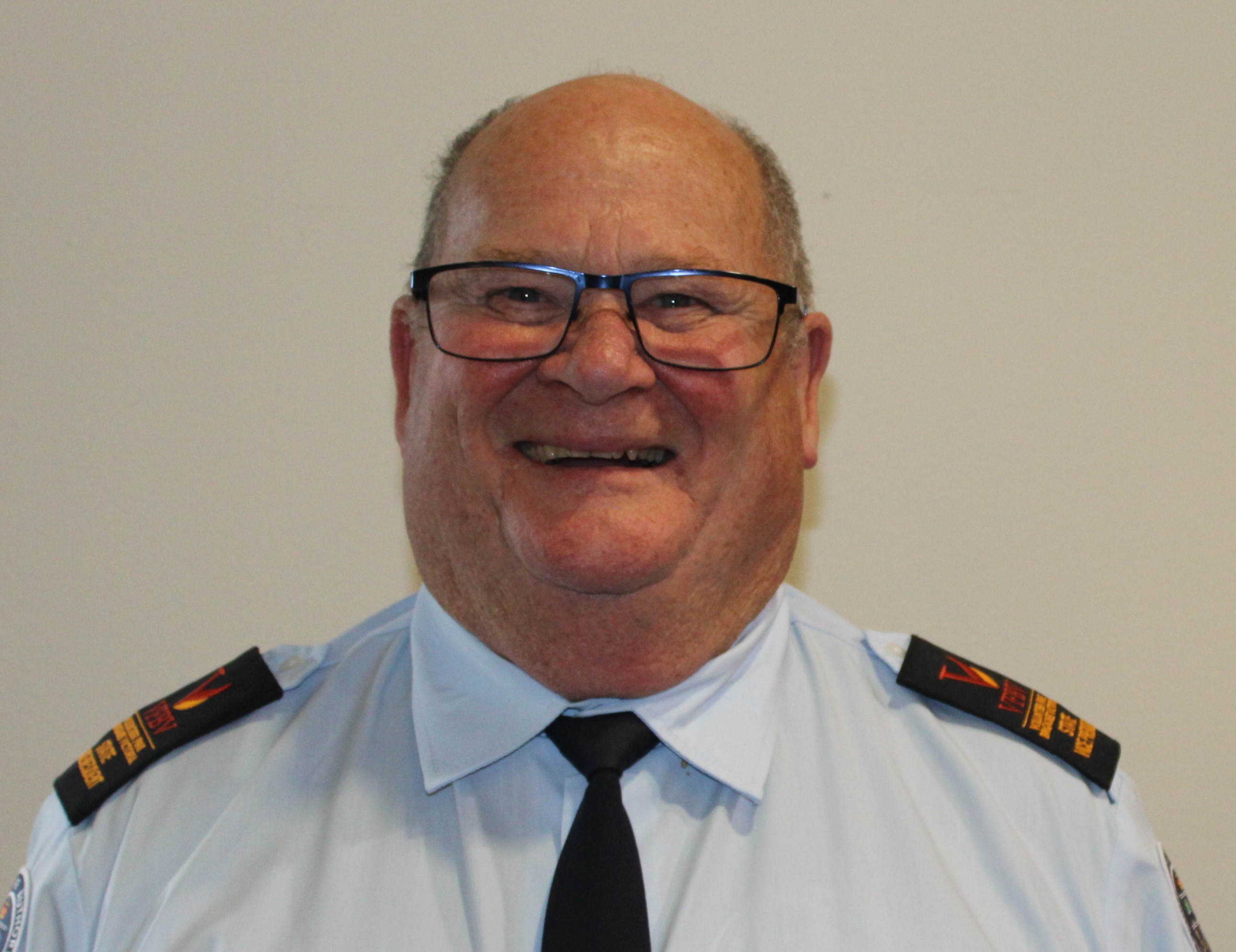 |
Howard Smith Howard a CFA volunteer for over 40 years, has been a VFBV State Councillor since 2014 and a Brigade delegate to District Council 24 for 35 years. A qualified L2 Incident Controller and qualified Situation Officer, Howard as the former Brigade Captain led a small rural fire brigade in its endeavours to obtain a Class 3 Brigade status with a growing township and a large freight, distribution, warehouse and logistics hub on the outskirts. Now retired, Howard feels he has the time to commit and contribute at the Board level, in representing and advocating for volunteers on VFBV’s priority issues under the current environment. Howard was elected State Vice President in October 2024.
|
 |
Libby Hay Libby grew up in country Western Australia, where her Dad was heavily involved in the local volunteer bushfire brigade. Having always had an awareness of how important volunteer fire brigades are to local rural and regional communities, life came full circle a few years ago when she joined the Barwon Heads Fire Brigade as an operational member. Barwon Heads is a classification 4 Brigade located in District 7. Libby is also the Brigade’s community safety coordinator and a member of the Bellarine Group Community Safety Committee. Libby’s professional background is in strategic communications with many years’ experience working in the private sector. It is this expertise she is looking forward to bringing to the Board of the VFBV.
|
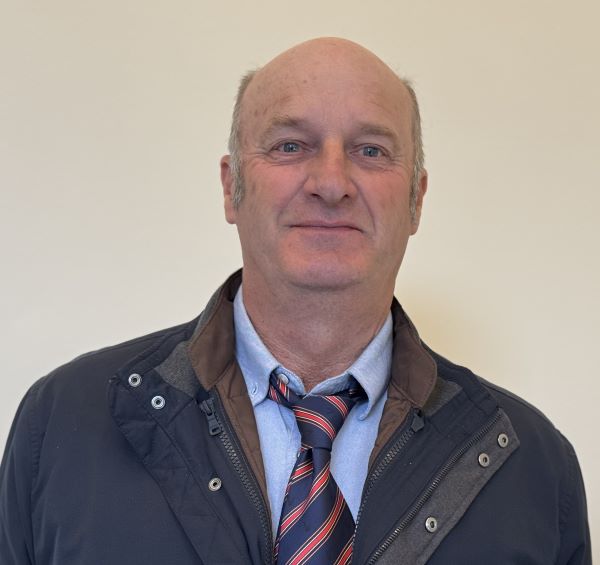 |
Kelvin Bateman AFSM Kelvin has been a CFA volunteer at Dunrobin-Nangeela in District 4 for more than 45 years and has held a range of positions within the brigade include Captain for the last 31 years and is also a Deputy Group Officer with the Casterton Group. Outside of CFA, Kelvin runs a family farm and is active in his local community as a member of the Dunrobin Hall Committee as well as being involved in local sporting clubs. Kelvin is passionate about improving volunteer amenities, particularly for Class 1 brigades. He has been a strong advocate for new trucks, fit for purpose fire stations which can house current vehicle typology and improvements to volunteer health and safety. He is also a keen coach, competitor and judge in the rural competitions and a member of the State Rural Championships Committee. Kelvin was appointed to the VFBV Board from 1 October 2024.
|
 |
Bill Maltby Competitions brought Bill Maltby to the CFA as a junior when his father was a volunteer at Taradale. Since then he has been a competitor, an official and in recent years a member of the Urban Competitions and Rules Committee. He has clocked up 35 years’ service as a CFA volunteer, fighting the Ash Wednesday and Black Saturday fires, and becoming Captain of the Castlemaine Fire Brigade. With 10 years services on the Castlemaine City Council, Bill was the City’s youngest Mayor at the age of 26. He was a Vice President of the Victorian Urban Fire Brigades Association when the two associations merged to form VFBV, and has served as VFBV’s Vice President (Urban). Bill Maltby says it is vital that the right decisions are made on integrated brigades; making the best use of volunteers to keep them skilled and engaged, while supporting them with staff wherever needed, including through seasonal and day manning.
|
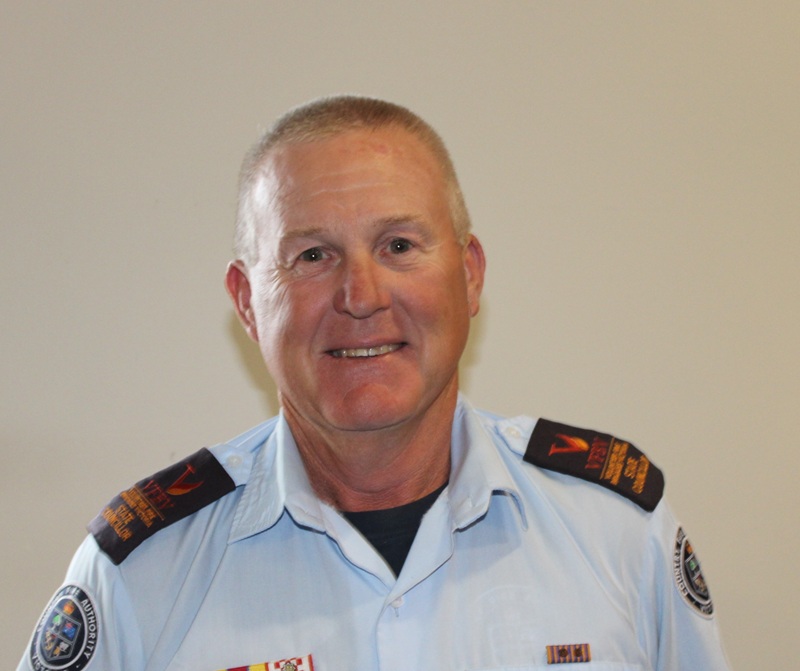 |
Greg Murphy A CFA member for more than 40 years with the Kerang brigade, Greg has held most roles in the brigade from Captain to Lieutenant and Treasurer, he has also held roles at the Group level and has recently finished a four-year term as chair of the District Planning Committee in District 20. Greg has had a long involvement with VFBV, having been involved in VUFBA at the local level for many years, before taking on the role of District Council President in 2013 and he also took on the role of State Councillor in 2017. Greg has also been heavily involved in urban competitions as a competitor, judge and now as a member of the VFBV Urban Competition and Rules Committee. Greg is appointed to the Board as one of the State Council delegates.
|
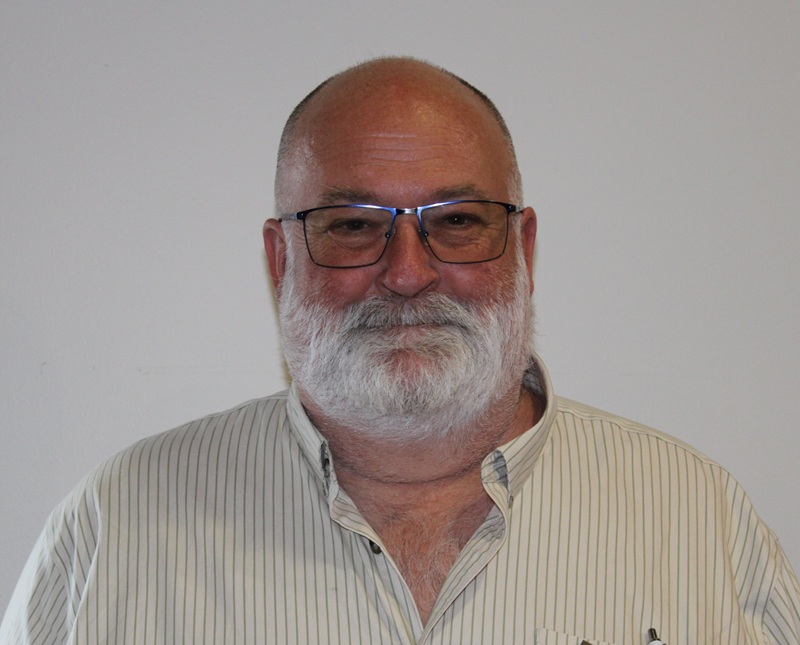 |
Eric Smith Eric has been a member of CFA for more than 24 years as a member of the Strath Creek-Reedy Creek Fire brigade in District 12. During his time with CFA he has served in several Lieutenant positions and as Captain of his brigade for more than 5 years. Since 2016, Eric has been a VFBV State Councillor for District 12 and has been a member of the Joint VFBV/CFA People, Culture and Safety Committee (formerly HR, Welfare and OH&S committee) and the State Council Executive Committee. Outside of CFA, Eric runs a joinery business working with clients to design and manufacture furniture for their homes. Eric is appointed to the Board as one of the State Council delegates.
|
 |
Mandy Straw Mandy is an active CFA volunteer with 25 years’ experience. Mandy is a member of Gazette Fire Brigade in District 5, having previously also been a member of Toolern Vale Fire Brigade in District 14. Mandy is currently the 1st Deputy Group Officer for the Mount Rouse Group and the Chair of the District 5 Health, Safety and Environment Committee. Mandy is also an endorsed Strike Team Leader and holds both Bushfire and Structure firefighting qualifications and is involved in the District 14 Incident Management Team training forums. Outside of CFA, Mandy is a registered nurse with post graduate certificates in Agricultural Health and Medicine and Remote Area Health, and is currently undertaking further study to become a Nurse Practitioner. Mandy is also a member of the Gazette Land Action Group and has previously been a volunteer Ambulance Community Officer and a Landcare President.
|
 |
Darren Wallace Darren first joined the Trafalgar fire brigade to help out the competition team and has remained a valuable operational firefighter since 1991. Holding positions of Captain, Lieutenant and Secretary at brigade level and Deputy Group Officer within Baw Baw Group.
|
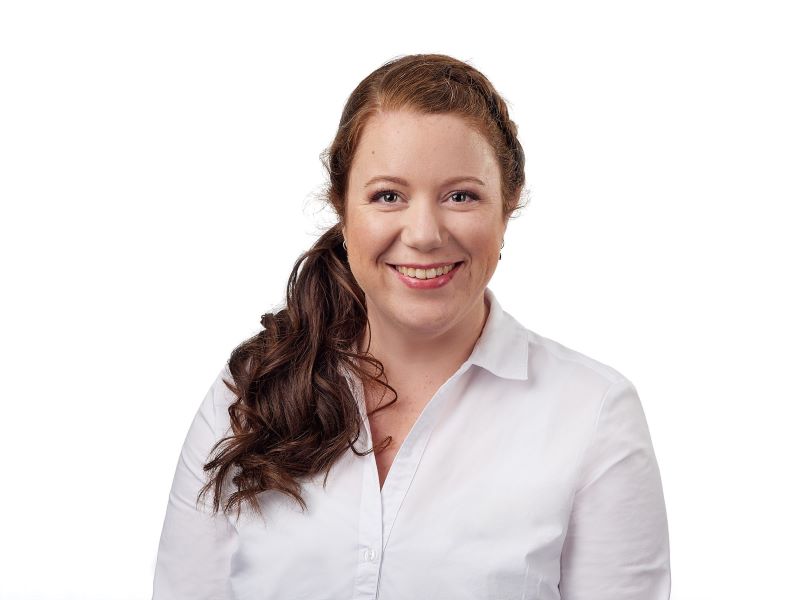 |
Danielle Watkins Danielle started as a CFA member with the Beaconsfield Fire Brigade in District 8 and is a now a member of the Warragul Fire Brigade in District 9. Danielle is passionate about diversity and inclusion within CFA and is the Chair of the South East Region’s Diversity and Inclusion Council and is currently establishing the Districts 9 an 27 Women’s network as well as putting together a women’s running team to compete in the rural championships. As a qualified Speech Pathologist, Danielle, works with children and members of the community with disabilities in her own practice. Danielle also has a passion of sport and sailing and has been a national and international sailing judge at major competitions including the 2016 Rio Paralympics.
|
VFBV Secretariat Team
Executive Team |
|
 |
Adam Barnett P: (03) 9886 1141 M: 0403 711 911 |
 |
Mark Dryden P: (03) 9886 1141 M: 0428 767 258 |
Support and Field Team |
|
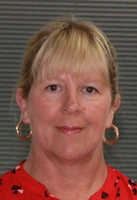 |
Chris Fryer P: 0400 228 601 |
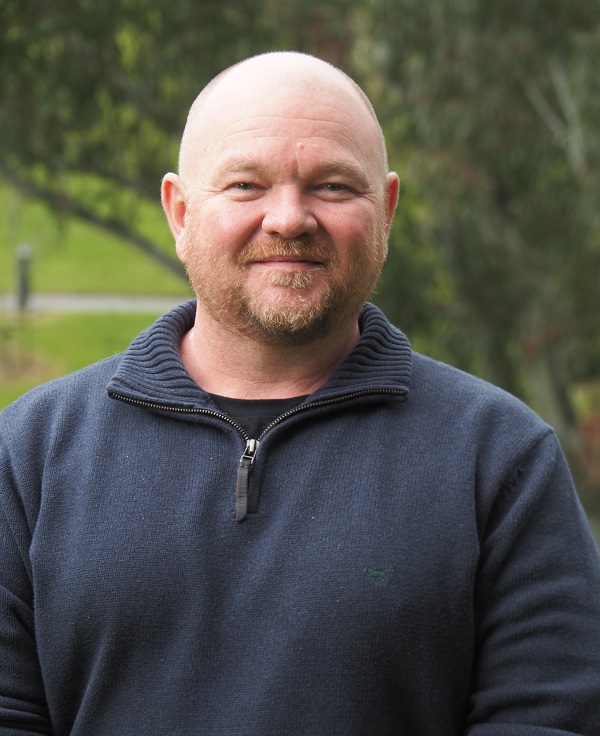 |
Max Blackmore P: 0409 119 477 |
 |
Colin Booth P: 0456 554 593 |
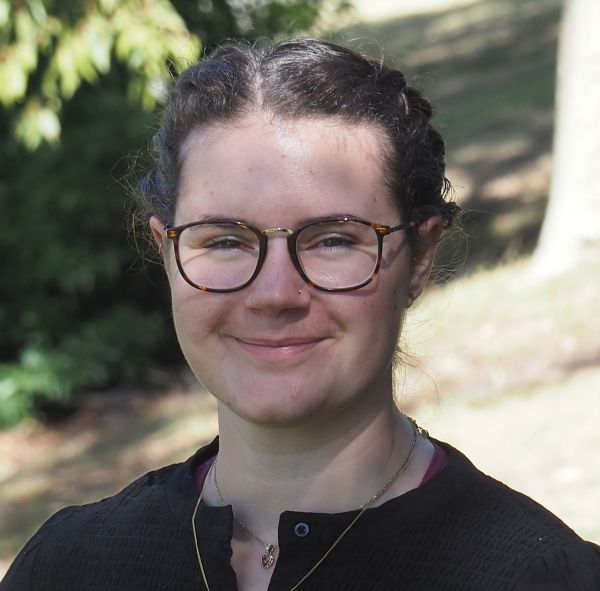 |
Carly Ficheroux P: 0428 751 652 |
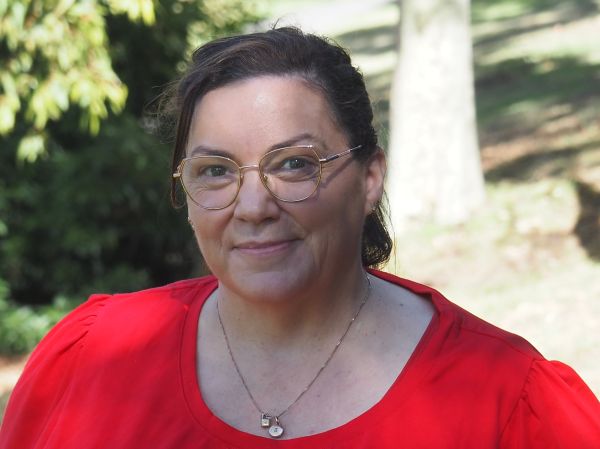 |
Michelle Taylor P: 0419 504 111 |
|
|
Jason Willis P: 0409 109 447 |
Administration Team |
|
 |
Cathie Smith P: (03) 9886 1141 |
 |
Kara Bishop P: (03) 9886 1141 |
 |
Jade van Blaricum P: (03) 9886 1141 |
Structure
The diagram below illustrates the overall structure of VFBV and process links between key VFBV forums plus the links and inputs to decision making levels of CFA Management. In simplest terms the roles of the three levels can be described as follows:
Board – Governance, strategic direction, policy and oversight;
State Council – is the operating level, key advisory forum and State wide representation;
District Councils – allow local level input and the local operating level
The VFBV CEO and staff secretariat provide overall coordination, management, advice and support to the Association at each level.

You can download a copy of the VFBV Constitution at the bottom of this page.
The roles of the three key levels of VFBV are:
Role of VFBV Board
- Governing body, responsible and accountable for the control of the business affairs, performance and governance of the Association;
- Determine policy and direction for the Association;
- Determine VFBV policy on matters referred by CEO or State Council;
- Appoint the CEO and monitor the CEO’s performance;
- Ensure the VFBV’s financial affairs are effectively managed and controlled;
- Ensure adherence to the Association’s Statement of Purposes;
- Ensure internal communication and consultative processes effectively engage membership;
Role of VFBV State Council
- Provide a forum for expression of views from Regional Councils and ensure issues raised by Regional Councils are addressed in a timely and satisfactory manner;
- Consider matters referred to it by VFBV Board and CEO and make recommendations on action to be taken;
- Elect State Council Executive Committee;
- Select representatives to VFBV/CFA Joint Committees;
- Manage process for selection of VFBV Board members;
- Make recommendation to VFBV Board for CFA Board nominations;
- Provide guidance to VFBV representatives on CFA/VFBV Joint Committees and be a conduit between VFBV Board and Regional Councils;
- Advise VFBV Board on the business affairs of the Association.
Role of District Councils
- Provide a forum for affiliated brigades to express volunteer concerns/views;
- Help brigades resolve matters of concern at local level;
- Provide volunteer leadership and represent volunteers at CFA Regional level;
- Provide a conduit for communication and information flow between VFBV Board, State Council and brigades;
- Refer matters that cannot be resolved at local level to VFBV State Council or CEO.
About VFBV
VFBV is the united voice of CFA volunteers and advocates on their behalf to CFA and other key stakeholders. The VFBV Board drives policy development based on volunteer input and is involved in management of issues that are of central importance to all CFA volunteers. There are ten members of the VFBV Board, comprising eight members appointed from CFA brigades and two ex officio Board members elected by State Council. The State President and Vice President are elected by the Board. Day to day issues are managed by a Chief Executive Officer and policy and issues are debated and formulated through specialist committees.
Statement of Purpose
The VFBV’s Statement of Purposes was adopted at the formation meeting of the VFBV on 14 October 2002 and incorporated under the Associations Incorporation Act on 16 October 2002.
- To function as a non profit organisation of Volunteer Fire Brigades within Victoria registered by the Country Fire Authority under the Country Fire Authority Act (1958) and its Regulations.
- To provide a united voice for volunteer fire brigades and regional councils registered with the Victorian Urban Fire Brigades’ Association Inc. and the Victorian Rural Fire Brigades’ Association Inc.
- To promote VFBV to CFA volunteers.
- To consult with CFA volunteers on matters that affect them.
- To provide a consultative mechanism through which CFA can appropriately consult with its volunteer members on matters that affect them according to the principles of the Volunteer Charter.
- To make representation on all matters which might reasonably affect the welfare and efficiency of CFA volunteers.
- To promote to volunteers their rights and responsibilities under the Volunteer Charter.
- To promote to CFA volunteers the comprehensive support services available to them including but not limited to: legal assistance, OH&S, equity and diversity, counselling and welfare, training, employment support and compensation for accidents, injuries and illnesses.
- To develop policy relating to the welfare and interests of volunteer members and promote that policy to CFA.
- To assist its members in furthering the purposes of the VFBV.
- To take any other action as determined by the VFBV Board.
The Volunteer Charter
The Charter is an agreed commitment by the State of Victoria, CFA and VFBV on behalf of CFA volunteers to each other.
It ensures the State of Victoria and CFA will commit to consultation with Volunteers about all matters which might reasonably be expected to affect volunteers.
You can download a copy of the Charter below.
Our Vision
Strong Volunteerism, Embraced to Build Community Resilience for a Safer Victoria
Mission
To achieve our vision we will:
- be well informed of and responsive to grass roots volunteer needs, ideas and concerns;
- represent volunteers and work with CFA and the Victorian Government to ensure ongoing commitment to the principles outlined by the Volunteer Charter;
- be aware of strategic influences, opportunities and challenges confronting CFA volunteers, volunteerism generally and the decision makers who influence our future;
- be proactive and prepared to lead and contribute, as volunteer advocates, to decision making and future planning processes at all levels;
- build the profile and relationships required to position VFBV as an active and respected influence on decision making;
- deliver communication, representation and decision processes that keep volunteers informed and provide opportunity for volunteers to be consulted on matters that impact on them
- resolve concerns and issues raised as quickly as possible;
- work collaboratively with CFA management to achieve a CFA culture, structure, and operating context that treats volunteers fairly, justly and reasonably.
Values and Behaviours
The Volunteer Code of Conduct details the behavioural principles expectations and ideals which all CFA volunteers will aspire to. The values and behaviours detailed in the Code, created by volunteers for volunteers, will provide the ethos underpinning all VFBV decision making plus guide how we treat each other and how we treat others.
This means we are committed to promoting and displaying behaviour underpinned by principles of:
- Safety;
- Respect;
- Trust, Integrity, Honesty and Truthfulness;
- Commitment and loyalty;
- Communication;
- Comradeship, teamwork, support and welfare;
- Leadership and Discipline;
- Equity and Diversity
We understand that the world around us is ever changing and we will remain alert to opportunities and challenges requiring our attention. We will respect tradition and also be open to new ideas based on what is best for volunteers into the future.
We will respect and encourage diversity of opinion and will passionately advocate the views of volunteers, providing leadership to ensure our message is based on objective thinking and informed strategic analysis.
We will respect and recognise the vital support provided to volunteers by families and employers and will always remain conscious of the needs and interests of these vital supporters of volunteers.
We will be proactive and will seek to work co-operatively with all who have a genuine interest in volunteer matters, or who can influence decisions impacting on volunteers. We will not show political bias.
We will display strong, transparent, governance and accountability to our constituents and stake-holders at all levels.
We will remain dedicated and focused on improving the welfare and efficiency of volunteers with a philosophy of volunteers supporting and representing volunteers.
We will deliver what we promise and we will finish what we start.

Victoria is one of the most fire prone areas in the world.
And with climate change this high risk situation is getting worse – the number and frequency of severe and widespread wildfires is increasing.
Growing urbanisation around Melbourne and our provincial cities with new homes, businesses and schools together with greater road traffic adds to the number of structural fires and road accidents.
Central to Victoria's capacity to cope with these threats around the clock is the volunteer based Country Fire Authority (CFA).
CFA has primary fire and related emergency service responsibility for most of Victoria and its surrounding coast including 60% of Melbourne's suburbs, all of our provincial cities and towns and all of our country areas.
Each year qualified and highly skilled CFA volunteers – men and women – respond to thousands of house and industrial fires, grass fires and bushfires, road and marine accidents, hazardous materials events and a vast array of other emergencies in their community.
Unpaid, CFA volunteers provide Victoria with emergency services valued at nearly $1 Billion each year. In addition to saving lives, CFA Volunteers save untold millions of dollars in property, environment and natural resources across Victoria. They protect local economies from devastation and thereby are a key part of protecting the Victorian economy.
And these figures don't even begin to incorporate the value of CFA volunteers building community capacity for preventing, responding to and recovering from emergencies as part of their own local communities. Nor do they incorporate the contribution of CFA volunteers to local community development whether raising funds for community projects, developing local leadership skills or building community networks for stronger communities.
VFBV wants to build greater awareness, respect and support amongst all levels of government, media and in the wider community for CFA Volunteers and their fundamental and central role in the CFA as an ever more effective volunteer based fire and emergency service for the people of Victoria.
What do CFA Volunteers do?
The CFA's 60,000 dedicated volunteers freely give their time to serve their community.
They train to national professional standards for emergency management and response; practice their craft through regular exercises; build community preparedness for fires and other emergencies; develop, communicate and educate on prevention strategies and initiatives; and, respond to fire and other emergencies. And they help Victorians and local communities recover from the ravages of fire and other disasters.
CFA volunteers are on call around the clock. They are supported and supplemented by 1,300 highly skilled operational and support paid staff of the CFA.
CFA volunteers come from Melbourne's suburbs, provincial cities, local towns, and communities across the state. They work at every level of the organisation from leadership and management to service delivery on the ground. They play a core role in CFA in planning and preparation; developing and implementing prevention strategies; and, delivering operational response, including incident management, to bushfires, structural fires and other emergencies. And they play an important part in helping individuals and communities recover from such disasters.
CFA volunteers are fundamental to the management and delivery of Victoria's emergency system.
For the Future
The challenge for the future is to maintain an effective community based volunteer model of fire and emergency service supported by a highly trained and dedicated operational, training, support and administrative paid staff and a small number of integrated brigades of volunteers and paid fire fighters at strategic locations.
To maintain and further develop this internationally renowned and cost effective system of protecting our State, with its inherent community capacity building advantages, CFA must actively engage its volunteers in strategic and practical leadership; effective planning; and, successful community recruitment and engagement programs. To achieve these outcomes CFA must also grow its investment in its volunteers through support services, recruitment and sustainment programs, accessible quality training, equipment and infrastructure.
And CFA and its volunteers must be effectively supported by Government, Parliament, business and the public.
Respect, recognition and practical support for volunteers and their families for their self sacrifice and the commitment they make to protect our community are key requirements for building and sustaining volunteerism for a safer Victoria.
For some it would seem far easier to just do fire and emergency response with employed staff and be done with it. But that would come at an overwhelming financial, community and operational cost.
And it is only through the current CFA volunteer/integrated model of fire and emergency response in our outer suburbs and in provincial centres that Victoria maintains a sufficient force of trained and experienced volunteers who regularly form wildfire strike teams for service all over the State and interstate when needed.
The needs of the future require that we grow and strengthen the CFA volunteer/integrated model for fire and emergency services.
Since 2000 the partnership of CFA Volunteer Associations with CFA Board and Management has …
Concluded the historic Volunteer Charter with the Victorian Government and CFA which guarantees the right of CFA Volunteers through their Association to be part of the CFA decision making process to represent the views and needs of CFA volunteers across the State. You can download a copy of the Volunteer Charter below.
Finalised a Deed of Agreement in August 2008 to strengthen the implementation of the Volunteer Charter and commit to practical ways of ensuring Charter provisions and aspirations are actively implemented throughout CFA.
Negotiated the $97.5 Million CFA Strategic Resource Initiative with the State Government which saw dramatic increases in funds for volunteer training, trucks and equipment and fire station infrastructure.
Ensured annual budgets meet growing CFA needs as an effective volunteer and community based fire and emergency service including the provision of the new state-wide Emergency Alerting System, new/upgraded fire appliances and fire stations as well as new and improved protective clothing, equipment, training and general support for volunteers.
Helped the State Government establish and manage of the Community Safety Emergency Support Program (CSESP) which has seen millions of dollars injected to support local brigades fundraising to acquire new brigade owned equipment and carry out local fire station improvements.
Secured up to date protective turnout gear for volunteer fire-fighters meeting the best available health, safety and operational standards for structural and wildfire protective clothing.
Designed, developed and deployed new fire fighting vehicles with improved crew protection standards including better spray self protection and foam systems.
Obtained $2million for a new welfare fund under VFBV to provide assistance for CFA Volunteers and their families in times of financial hardship.
Developed and applied new policies including Equal Opportunity, Discipline and Volunteer Code of Conduct to ensure high standards of conduct and professionalism within CFA.
Reached for the future through CFA special youth initiatives including a recent joint Youth Forum which brought young men and women together from all over the State to plan for the future of CFA volunteerism.
VFBV continues to develop better, more effective consultation and engagement between the CFA Board, Management and Volunteers to build an even more effective volunteer and community based CFA.


